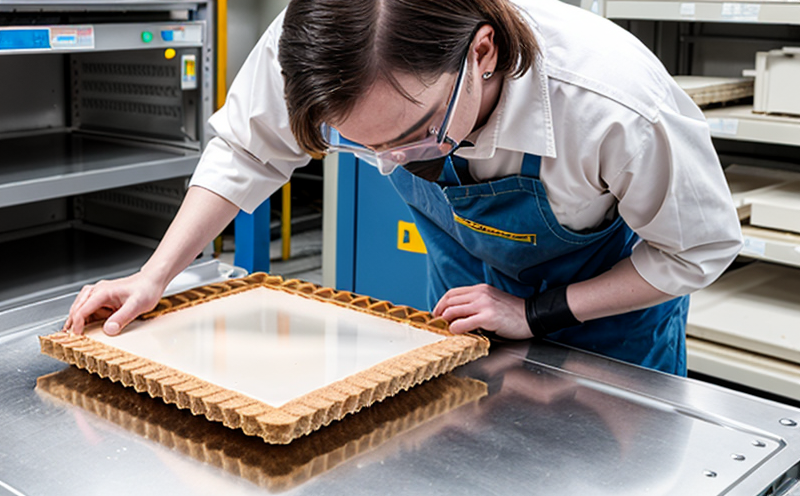IEC 60749 Wafer Electrical Isolation Testing
The International Electrotechnical Commission (IEC) standard IEC 60749 specifies the performance and electrical isolation requirements for semiconductor wafers. This testing ensures that the insulating properties of a wafer are adequate to prevent short circuits, which can significantly impact the performance and reliability of microchips.
The process involves placing the wafer in a high-precision test fixture where it is subjected to various voltages to simulate real-world conditions. The testing apparatus measures the leakage current across the wafer’s surface to determine its electrical isolation capability. This method helps identify any defects or imperfections that could compromise the integrity of semiconductor devices.
During the test, wafers are first cleaned and conditioned according to specific protocols to ensure accurate results. The testing apparatus then applies a series of voltage levels, typically ranging from 10V to 3kV, in steps, to check for any breaches in electrical isolation. If the leakage current exceeds specified thresholds, it indicates inadequate insulation, which would fail the IEC 60749 standard.
The testing process is highly repeatable and reproducible, ensuring consistent results across different batches of wafers. This is critical for quality control during manufacturing processes, as even minor defects can have cascading effects on the performance of integrated circuits (ICs).
Electrical isolation is a fundamental requirement in semiconductor manufacturing, especially when dealing with advanced nodes where even small leakage currents can be problematic. The testing ensures that wafers meet stringent reliability and performance criteria set by industry standards.
The results from this test are reported in terms of the maximum allowable leakage current at various voltage levels. Compliance with these specifications is crucial for ensuring the long-term stability and reliability of semiconductor devices, which can have significant implications for product durability and consumer trust.
Why It Matters
The importance of wafer electrical isolation testing cannot be overstated. Electrical isolation is a critical parameter that affects the performance and reliability of semiconductor devices. Poor electrical insulation can lead to short circuits, which in turn can cause malfunctions or complete failure of microchips.
- Reduces the risk of product defects
- Improves overall yield during manufacturing processes
- Safeguards against potential damages from overheating and electrical surges
- Ensures compliance with international standards such as IEC 60749
The testing process not only enhances product reliability but also supports the development of more advanced semiconductor technologies. By adhering to these stringent tests, manufacturers can ensure that their products meet or exceed industry expectations.
Eurolab Advantages
At Eurolab, we pride ourselves on offering comprehensive wafer electrical isolation testing services tailored specifically for the semiconductor and microchip industries. Our expertise in this field ensures that our clients receive accurate and reliable results every time.
- State-of-the-art testing equipment capable of handling a wide range of wafer types
- Skilled technicians with deep knowledge of IEC 60749 standards
- Flexible scheduling to accommodate tight project deadlines
- Comprehensive quality management systems in place to ensure consistent results
We understand that reliability and precision are paramount in the semiconductor industry. Our commitment to excellence is reflected in our ability to deliver high-quality testing services that meet or exceed client expectations.
Quality and Reliability Assurance
- Consistent Testing Results: Eurolab’s advanced equipment ensures consistent results, reducing variability in test outcomes. This consistency is crucial for maintaining product quality.
- Compliance with Standards: Our testing procedures are meticulously designed to align with IEC 60749 and other relevant international standards, ensuring that your products meet all necessary regulatory requirements.
We also provide detailed reports for each test conducted, including statistical analysis of the results. These reports not only document the performance of the wafers but also offer insights into potential areas for improvement in future manufacturing processes.





